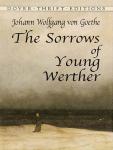June 21
My days are as happy as those reserved by God for his elect; and, whatever be my fate hereafter, I can never say that I have not tasted joy,—the purest joy of life. You know Walheim. I am now completely settled there. In that spot I am only half a league from Charlotte; and there I enjoy myself, and taste all the pleasure which can fall to the lot of man.
Little did I imagine, when I selected Walheim for my pedestrian excursions, that all heaven lay so near it. How often in my wanderings from the hillside or from the meadows across the river, have I beheld this hunting-lodge, which now contains within it all the joy of my heart!
I have often, my dear Wilhelm, reflected on the eagerness men feel to wander and make new discoveries, and upon that secret impulse which afterward inclines them to return to their narrow circle, conform to the laws of custom, and embarrass themselves no longer with what passes around them.
It is so strange how, when I came here first, and gazed upon that lovely valley from the hillside, I felt charmed with the entire scene surrounding me. The little wood opposite—how delightful to sit under its shade! How fine the view from that point of rock! Then, that delightful chain of hills, and the exquisite valleys at their feet! Could I but wander and lose myself amongst them! I went, and returned without finding what I wished. Distance, my friend, is like futurity. A dim vastness is spread before our souls: the perceptions of our mind are as obscure as those of our vision; and we desire earnestly to surrender up our whole being, that it may be filled with the complete and perfect bliss of one glorious emotion. But alas! when we have attained our object, when the distant there becomes the present here, all is changed: we are as poor and circumscribed as ever, and our souls still languish for unattainable happiness.
So does the restless traveller pant for his native soil, and find in his own cottage, in the arms of his wife, in the affections of his children, and in the labour necessary for their support, that happiness which he had sought in vain through the wide world.
When, in the morning at sunrise, I go out to Walheim, and with my own hands gather in the garden the pease which are to serve for my dinner, when I sit down to shell them, and read my Homer during the intervals, and then, selecting a saucepan from the kitchen, fetch my own butter, put my mess on the fire, cover it up, and sit down to stir it as occasion requires, I figure to myself the illustrious suitors of Penelope, killing, dressing, and preparing their own oxen and swine. Nothing fills me with a more pure and genuine sense of happiness than those traits of patriarchal life which, thank Heaven! I can imitate without affectation. Happy is it, indeed, for me that my heart is capable of feeling the same simple and innocent pleasure as the peasant whose table is covered with food of his own rearing, and who not only enjoys his meal, but remembers with delight the happy days and sunny mornings when he planted it, the soft evenings when he watered it, and the pleasure he experienced in watching its daily growth.
